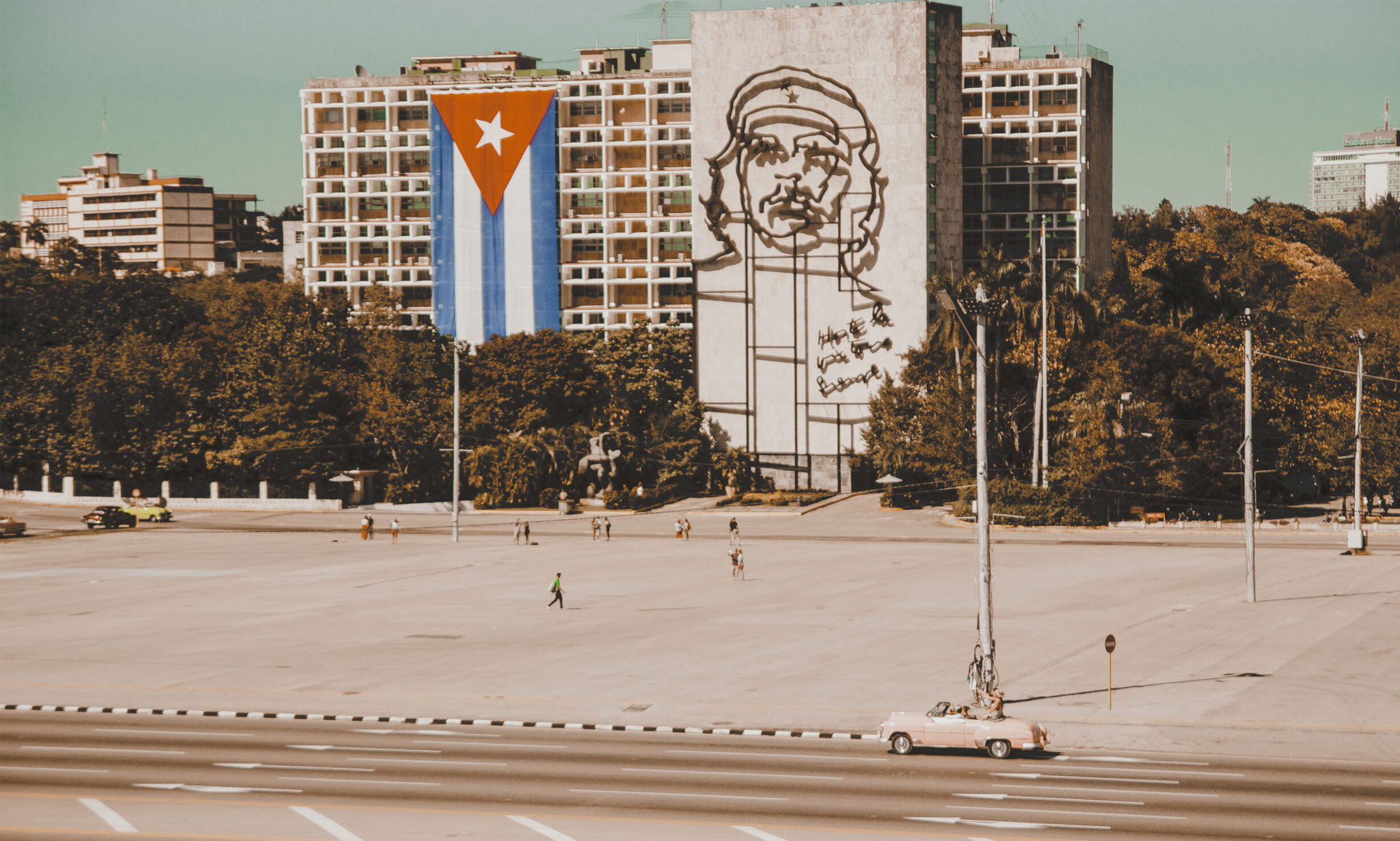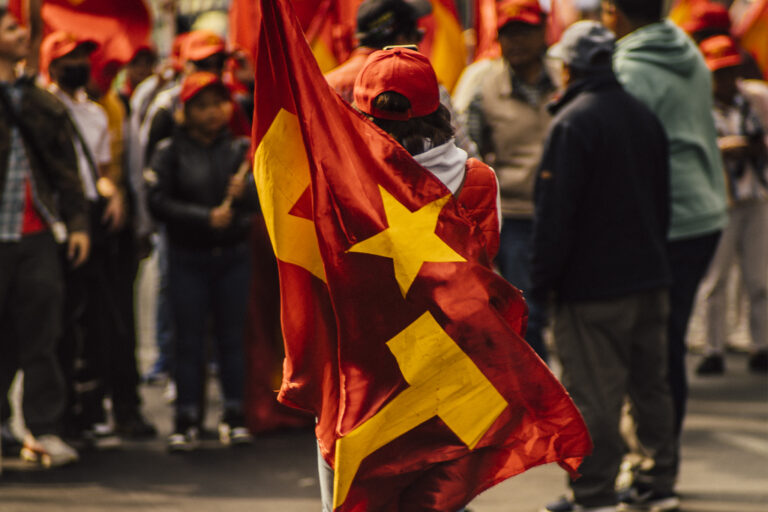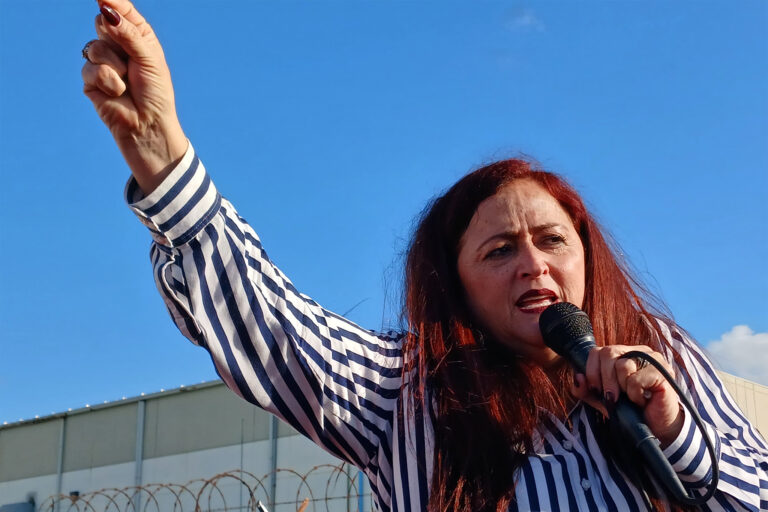Against Cuba: A Fetid, Arbitrary and Despotic Obsession
This editorial by Tatiana Coll appeared in the June 26, 2026 edition of La Jornada, Mexico’s premier leftist daily newspaper.
In the port of Havana, a ship carrying tons of rice is anchored, waiting to unload. It may not unload because to do so, it must receive a signal from the commercial center that contracted the ship that it has received $60,000 in payment. For the $60,000 to reach that center, which can be anywhere in the world because it is very difficult to get ships willing to transport merchandise to Cuba, Havana must carry out almost clandestine operations through a series of camouflaged movements, so as not to be detected by the US systems monitoring Cuban transactions. If the $60,000 achieves this feat and reaches the company’s account, the ship will unload the rice; if not, it will turn around and leave.
That shipment could also be wheat flour, petroleum, spare parts, inputs for manufacturing medicines, paper pulp, or many other items required to sustain the basic social, cultural, and economic life of the island. Payment must always be made this way to evade the international tax dogs that the Yankees have deployed for many years to maintain financial control. This financial control makes Cuba a country with no access to credit, no loans of any kind; everything must be paid for in cash immediately, in a world of free markets and financial havens.
In Mexico, we can make a bank transfer to any country, to any bank, but we can’t do it to Cuba; no bank will do it. This is a hidden aspect of the blockade, but it’s certainly devastating. Not only because of the shortages it imposes, but also because of the rising prices of every product, companies and ships that decide to take the risk of transporting something to Cuba take advantage and double the prices.

During the pandemic, for example, oxygen machines, syringes, and medications had to be purchased at double or triple the price when they could be found. There are 37 wonderful art schools working miracles to stay afloat, and there are 2,300 cultural institutions. How do we get violins, guitars, oil paintings, canvas, ballet slippers? How much does it cost to bring in tennis shoes, balls, and maintain sports fields?
Cuba is a large island, but, like all Caribbean islands, its environment imposes very limited production conditions. It has always had an Achilles’ heel in its lack of energy, limited food diversity, and the need for raw materials of all kinds to sustain domestic production. Without energy, obviously, nothing moves: not even a small home fan, transportation, factories, elevators, shops, the Internet—everything shuts down.
In the 1980s, the USSR proposed building a nuclear power plant, but its demise left a huge structure abandoned, vulnerable to hurricanes that are slowly dismantling it. Mexico, an oil-producing nation, has never wanted to establish a potentially beneficial trade: supplying oil that would be refined, for example, at the Ñico López refinery, and returned to our country as gasoline. Agreements were signed with Central America to supply oil, but never with Cuba.
On May 30, 3 million liters of stolen fuel were found in Tabasco. Couldn’t these embezzled and recovered assets be sent to Cuba?
The focus of the Promotora de Solidaridad ¡Va por Cuba! activities was precisely that: oil for Cuba from Mexico. Today, the dismantling of Pemex has left incredible losses. For example, on May 30, 3 million liters of huachicol [fuel theft] were found in Tabasco. These are now embezzled and recovered assets. Couldn’t they be sent to Cuba? Couldn’t we find ways to supply the island? The oil Cuba requires is truly minimal compared to our production.
Even the smallest detail is observed and its development blocked by this fetid, unhealthy, arbitrary, and despotic US determination. Cubans are wondering in dismay: What else are they going to invent? What other measure will appear? They started by taxing remittances, which in itself is a feat. This month, they imposed two new ones: entry of citizens to the US is restricted; 12 countries were warned, including Cuba and Venezuela. Trump said: “We will not allow people who want to harm us to enter.”
Now they are no longer welcome, whereas their illegal departure was previously encouraged in various ways. Now they are even deported to countries like Sudan. Another absolutely arbitrary measure is the decision that visas will not be granted to officials from third countries who hire Cuban doctors. A threat that I hope does not frighten the directors of the Mexican Social Security Institute (IMSS) and the ISSSTE (National Institute of Social Security), nor the Secretary of Health in Mexico. Doctors fill positions we have no way to fill and perform essential work. Only the right-wing in our country echoes this nonsense.
In the midst of the imperial madness invading the Americans, who are dropping bombs everywhere, we are deeply concerned that the answer to the question “What else are they going to implement?” is the bombing of this courageous and supportive island. It would be a historical aberration, abject in the face of any notion of civilization.

Editor’s Note: Mexico City’s annual Cuba solidarity dance in honour of the Cuban Revolution’s 72nd anniversary will be held on Friday, July 18th in Mexico City at the historic Salón Los Angeles.
Tickets can be purchased at the Los Angeles box office or by telephone at 55-1652-7634, 55-3203-3728 or 55-3878-1142.
Movimiento Mexicano de Solidaridad con Cuba
-
Workers Party Claims Sheinbaum Electoral Reform Will Eliminate Party System
The socialist party’s leader recalled the democratic spaces that the left managed to conquer with the 1977 & 1996 reforms, a “fruit of countless struggles, repressions, imprisonments, disappearances and even armed uprisings.”
-
Anti-FIFA Challenge: Football Defends the Territory
Mexico City residents are organizing Anti-World Cup Days to protest water theft and gentrification that have accompanied preparations for the World Cup, put on by the corrupt, international criminal consortium known as FIFA.
-
Tridonex Strike in Matamoros to Start March 6th
1,300 workers are expected to strike, demanding the company fulfill its obligation to pay workers in full. Tridonex is owned by First Brands, the US autoparts corporation accused of massive fraud.




